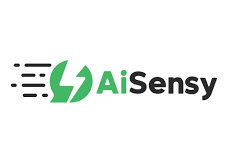For decades, traditional data centers have been the most predictable and controlled infrastructure to house high-risk and proprietary assets, such as personal information, medical records and financial information.[1] Widely distributed applications must adapt, resize, relocate, and reconfigure to meet evolving business requirements.
Moreover, as AI workloads tend to be resource-intensive, vast amounts of data are required for the training and inference of AI algorithms thus generating a lot of data.2 As a result, in today’s swiftly advancing digital landscape, businesses are persistently seeking inventive remedies to enhance efficiency, flexibility, and overall performance of their data infrastructure. Leveraging both on-premises storage and the elasticity of cloud storage can help build a seamless and efficient data management strategy.
This hybrid data center strategy represents a strategic fusion of conventional on-premises setups and cloud-based services, combining the reliability and control of traditional infrastructure with the flexibility and scalability of cloud solutions. With the right approach, businesses can optimize their IT environment and seamlessly integrate resources, applications, and workloads, ensuring efficient operations and adaptability to changing demands.
Why should you opt for hybrid data centres?
- Flexibility and Scalability: The hybrid data storage infrastructure enables companies to adjust their IT resources in response to demand fluctuations. This adaptability is well-suited for managing varying workloads and seasonal surges in IT resources and infrastructure. For example, by investing in hybrid data storage infrastructure, a retail organization can swiftly scale up, capitalizing on the performance of cloud when needed, ensuring a seamless shopping experience for customers without the need to overcommit resources year-round. This approach maximizes both cost savings and performance optimization in a dynamic retail environment.
- Security and Compliance Adaptability: In a business environment characterized by fluctuating workloads, hybrid data storage provide organizations with the ability to quickly resize their infrastructure to accommodate changing demands, while maintaining a focus on security and compliance. A financial institution can maintain sensitive customer data on-premises due to regulatory requirements while using cloud for data analytics and less sensitive data. With on-premises data centers, organizations can exercise greater control over their data, ensuring data security and compliance with regulatory requirements.
- Cost–effectiveness: In the quest for cost optimization, businesses place it high on their priority list. Through the utilization of multiple cloud service providers, businesses can benefit from competitive pricing strategies, effectively optimizing expenses. Furthermore, transferring cloud data storage to a cost-efficient provider can lead to substantial reductions in cloud storage expenses. 3
- Resiliency: Unforeseen disasters can severely disrupt business continuity. By replicating data and applications between on-premises and cloud environments, businesses can establish robust redundancy and seamless failover mechanisms, mitigating the impact of disruptions and maximizing uptime. This strategy can come handy across sectors like retail chains, hospitality, hospitals, or virtually any data-driven business.
- Right Storage options: Whether data is stored on-prem on in cloud, it is important to choose a hybrid approach- mix of HDDs and SSDs- as it offers the flexibility to fine-tune the storage infrastructure to align with specific requirements, ensuring that resources are allocated optimally. Western digital has recently introduced 24TB* and 28TB *enterprise-class hard drives to help organizations efficiently store ever more data. Western Digital’s high capacity NVMe™ powered SSDs are an ideal solution for cloud and server providers who need performant, high-capacity, cost-optimized, read-intensive performance for their data-intensive applications.
Conclusion:
In the world of digital technology, where the pace of change is relentless, the focus is now on hybrid data storage infrastructure. It represents the next step in the ongoing evolution of data management. The hybrid approach offers a flexible and efficient solution for organizations, enabling them to thrive in today’s fast-paced business landscape.
(Attributed to Jaganathan Chelliah, Senior Director – Marketing, India, Middle East & TIA, Western Digital)
 Newspatrolling.com News cum Content Syndication Portal Online
Newspatrolling.com News cum Content Syndication Portal Online






